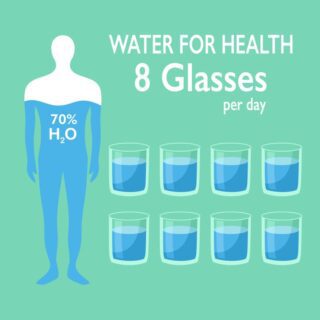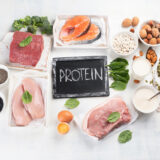What are Other Sources of Protein that are Not Meat?

Healthier Protein?
While protein is an essential part of your diet, some sources of protein are healthier than others. Meat and seafood are rich in protein, but so are dairy products, eggs, and many plant-based foods. Consuming more plant-based protein and less animal-based protein may help you to live longer, improve your heart health, decrease your blood pressure and blood sugar, decrease your risk of cancer, decrease pain by reducing inflammation, and decrease your risk of cognitive decline.
Non-meat Sources of Protein
So, what are some non-meat sources of protein?
- Dairy products: 17 gm in 6 oz of yogurt, 14 gm in ½ cup of cottage cheese, 8 gm in 1 cup of milk
- Eggs: 6 gm each
- Seitan (wheat gluten): 25 gm per 3.5 oz
- Soy (soy milk, tofu, tempeh, edamame): 12-20 gm per 3.5 oz
- Lentils: 18 gm per cooked cup
- Beans (e.g., kidney, black, pinto, chickpeas): 15 gm per cooked cup
- Nutritional yeast: 8 gm per ½ oz
- Spelt and teff: 10-11 gm per cooked cup
- Hemp seeds: 9 gm per 3 tablespoons
- Green peas: 9 gm per cooked cup
- Spirulina (a blue-green algae): 8 gm per 2 tablespoons
- Amaranth and quinoa: 8-9 gm per cooked cup
- Sprouted grains: 8 gm per 2 slices of Ezekiel bread
- Oats: 10-11 gm per uncooked cup
- Wild rice: 7 gm per cooked cup
- Chia seeds: 4.7 gm per oz
- Nuts: 5-7 gm per oz
- Vegetables (e.g., spinach, corn, sweet potatoes, broccoli, Brussel sprouts, asparagus): 4-6 gm per cooked cup
Complete protein sources are those which contain all of the amino acids which humans cannot produce themselves and which must be obtained from foods. In addition to meat and dairy products, some plant-based foods also provide complete or nearly complete protein sources. These include soy, amaranth, quinoa, sprouted grains, buckwheat, spirulina, hemp seeds, nutritional yeast, mycoprotein, the combination of rice and beans, the combination of peanut butter and whole-grain bread, and the combination of pita and hummus.
Conclusion
Obviously, there are many non-meat sources of protein from which to choose. Food choices can be based on your personal preferences, as well as your other dietary priorities. For example, if incorporating more fiber into your diet is a priority, plant-based sources of protein, such as legumes, nuts, and whole grains would be good choices. Dairy products, soy, other legumes, and dark leafy greens would be good choices if you want to add more calcium to your diet.

Summary:
- Protein Sources Beyond Meat:
- Plant-based proteins offer health benefits like improved heart health and decreased cancer risk.
- Dairy products, eggs, and various plant-based foods provide ample protein options.
- Opting for more plant-based proteins may enhance longevity and reduce inflammation.
- Non-Meat Protein Sources:
- Dairy: Yogurt, cottage cheese, milk.
- Eggs: 6g each.
- Plant-based: Seitan, soy, lentils, beans, nutritional yeast, spelt, teff, hemp seeds, green peas, spirulina.
- Grains: Amaranth, quinoa, sprouted grains, oats, wild rice.
- Seeds and nuts: Chia seeds, various nuts.
- Vegetables: Spinach, corn, sweet potatoes, broccoli, Brussels sprouts, asparagus.
- Complete Protein Sources:
- Foods with all essential amino acids: Soy, amaranth, quinoa, sprouted grains, buckwheat, spirulina, hemp seeds, nutritional yeast.
- Combinations: Rice and beans, peanut butter and whole-grain bread, pita and hummus.
- Personalized Food Choices:
- Consider dietary priorities, such as fiber or calcium intake.
- Plant-based sources like legumes, nuts, and whole grains are fiber-rich.
- Dairy, soy, legumes, and dark leafy greens offer calcium.

This article reviewed by Dr. Jim Liu, MD and Ms. Deb Dooley, APRN.
There’s nothing more important than our good health – that’s our principal capital asset.
#medical #telehealth #umedoc










